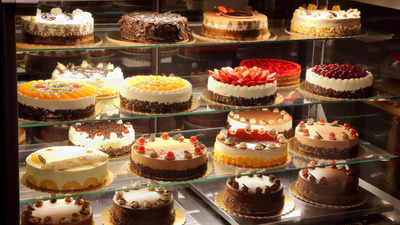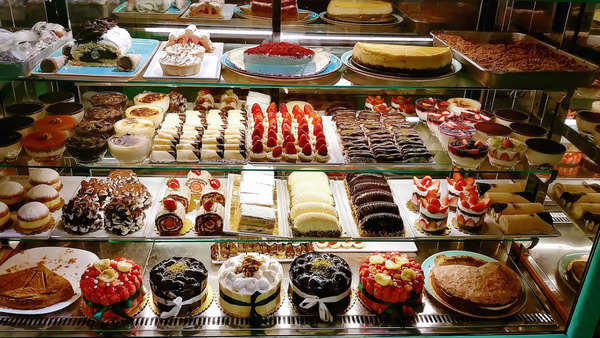In India, birthdays and anniversaries are incomplete without cakes. But, what if you get to know that our favourite slice of chocolate or vanilla cake is loaded with carcinogens? Are you shocked? Well, it’s true, scroll down to read the details.
As per latest details, the
Food
Safety and Quality Department in Karnataka conducted a survey and tested 235 cake samples in the state and found carcinogenic ingredients in 12 of them.
9 Cruciferous vegetables for a healthy heart
The officials found popular varieties, such as red velvet and black forest laced with cancer-causing agents. If reports are to be believed, Food Safety Commissioner Srinivas K has advised bakeries to exercise caution, warning them against using harmful chemicals and colouring agents in cakes.
In a statement, the commissioner said that they tested 235 samples from bakeries across the state and revealed that these varieties had artificial colours like Allura Red, Sunset Yellow FCF, Ponceau 4R, Tartrazine, and Carmoisine exceeding the prescribed limits.
This warning has been issued after the Food Safety Department banned artificial colours in dishes like gobi manchurian, kebabs, and pani puri sauces.
Also Read:International agency finds cancer-causing chemicals in popular Indian spice brands
After the survey took place, Health Minister Dinesh Gundu Rao said that bakeries and other outlets found using harmful colouring agents in their products have been warned to adhere to food safety and quality standards.
He emphasized that the use of such additives is prohibited under the Food Safety and Standards Act, 2006, and the Food Safety and Standards (Food Products, Standards, and Food Additives) Regulations, 2011, due to the significant health risks they pose to consumers. The statement also reads that strict action will be taken against those who fail to comply with the regulations.
Now, that you know about the carcinogens being used in the cakes, let us tell you in detail about each synthetic colour and damage they are causing in the body.
What is Allura Red?
Allura Red, also known as Red 40 or E129, is a synthetic red dye commonly used in food products, beverages, and cosmetics.
Side effects: As per experts, excessive consumption of this synthetic colour may lead to allergic reactions, including hives, itching, or swelling, particularly those with sensitivities to food dyes.
Also Read:9 cancer-causing foods we consume regularly
What is Sunset Yellow FCF?
Sunset Yellow FCF, also known as E110, is a synthetic yellow dye commonly used in food, beverages, and cosmetics.
Side effects: Consumption of large amounts may lead to gastrointestinal discomfort, including nausea, vomiting, or diarrhea in sensitive individuals. They are also said to cause skin irritation or allergic dermatitis in some individuals.
What is Ponceau 4R?
Ponceau 4R, also known as E124, is a synthetic red dye used in food, beverages, and cosmetics.
Side effects: As per experts, high consumption of this synthetic colour may lead to gastrointestinal discomfort, including nausea, vomiting, or diarrhea in sensitive individuals. This colour may cause skin irritation or allergic dermatitis in some people.
What is Tartrazine?
Tartrazine, also known as E102, is a synthetic yellow dye commonly used in food, beverages, and cosmetics.
Side effects: As per experts, use of this colour in food is linked with increased hyperactivity or behavioral issues in children, particularly those with Attention Deficit Hyperactivity Disorder (ADHD).
What is Carmoisine?
Carmoisine, also known as E122, is a synthetic red dye used in various food products, beverages, and cosmetics.
Side effects: While regulatory agencies consider carmoisine safe within established limits, some studies have raised concerns about the long-term effects of synthetic dyes and their potential carcinogenic effects.


